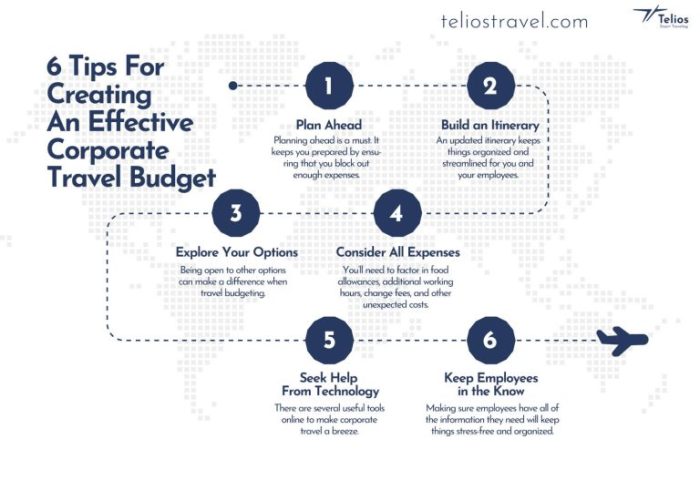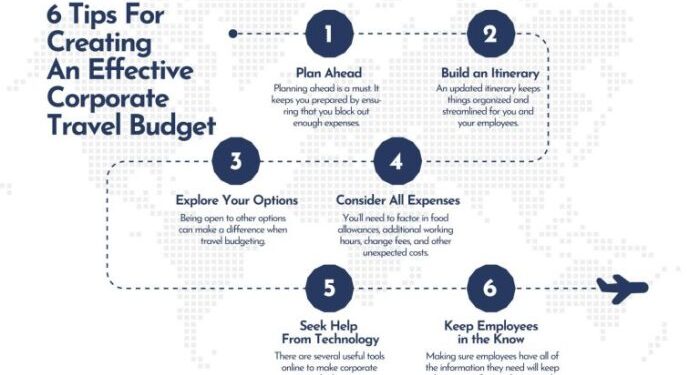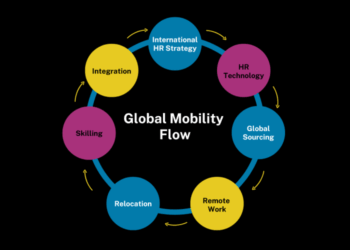Exploring the realm of Corporate Traveller Programs and their impact on slashing travel expenses opens up a world of possibilities. Dive into a journey filled with insights and strategies that could revolutionize how companies manage their travel budgets.
Delve deeper into the cost-saving strategies and technological advancements that pave the way for significant reductions in travel expenses.
Introduction to Corporate Traveler Programs
Corporate traveler programs are structured arrangements put in place by companies to manage and optimize their employees' business travel activities. These programs typically involve negotiated rates with airlines, hotels, and other service providers to streamline the booking process and reduce costs for the company.Companies implement corporate traveler programs to ensure cost efficiency, enhance employee productivity, and maintain travel policy compliance.
By centralizing the booking process and enforcing specific guidelines, companies can control expenses, monitor travel patterns, and ensure duty of care for their employees.
Benefits of Corporate Traveler Programs
- Cost Savings: By negotiating discounted rates and enforcing travel policies, companies can significantly reduce travel expenses.
- Streamlined Processes: Centralized booking platforms and pre-approved vendors make it easier for employees to arrange travel quickly and efficiently.
- Data Analysis: Corporate traveler programs provide valuable data on travel patterns, expenses, and compliance, enabling companies to make informed decisions for future travel arrangements.
- Duty of Care: By tracking employees' whereabouts during business trips and providing assistance in case of emergencies, companies can ensure the safety and well-being of their staff.
Cost-saving Strategies within Corporate Traveler Programs
Corporate traveler programs offer various strategies to help cut travel budgets in half. One key approach is negotiating with travel suppliers to secure discounted rates and favorable terms. Another important strategy involves setting clear travel policies and guidelines to ensure compliance and cost control.
Negotiating with Travel Suppliers
When it comes to cutting travel costs, negotiating with travel suppliers is crucial. By establishing partnerships and agreements with airlines, hotels, car rental companies, and other service providers, companies can access discounted rates and exclusive deals. This not only helps reduce expenses but also ensures a seamless travel experience for employees.
Setting Clear Travel Policies and Guidelines
Having well-defined travel policies and guidelines is essential for maximizing cost savings within corporate traveler programs. By outlining rules for booking travel, selecting accommodation, and claiming expenses, companies can avoid unnecessary costs and streamline the travel process. Clear policies also help employees understand their responsibilities and make informed decisions while on the road.
Utilizing Technology for Cost Efficiency
In today's digital age, technology plays a crucial role in optimizing corporate travel expenses. By leveraging the right tools and software, companies can streamline the booking process, track expenses more effectively, and identify cost-saving opportunities through data analytics.
Streamlining Travel Arrangements
- Online Booking Platforms: Utilizing online booking platforms can simplify the process of making reservations for flights, hotels, and rental cars. These platforms often offer discounted rates and allow for easy comparison of prices.
- Travel Management Systems: Implementing a travel management system can centralize travel data, making it easier to track expenses, manage bookings, and generate reports for analysis.
- Mobile Apps: Mobile applications designed for corporate travelers can provide real-time updates on flight status, itinerary changes, and expense tracking, ensuring a seamless travel experience.
Expense Tracking and Optimization
- Expense Management Software: Tools like Expensify or Concur can automate the expense reporting process, ensuring accurate and timely reimbursement for employees while providing insights into spending patterns.
- Travel Policy Compliance Tools: Implementing tools that monitor compliance with travel policies can help companies enforce cost-saving measures and reduce unnecessary expenses.
- Virtual Payment Solutions: Virtual payment solutions offer a secure and efficient way to pay for travel expenses, while also providing better visibility and control over spending.
Data Analytics for Cost-Saving Opportunities
- Forecasting Tools: Utilizing forecasting tools can help companies predict future travel expenses based on historical data, allowing for better budget planning and cost control.
- Vendor Performance Analysis: Analyzing vendor performance data can help identify opportunities to negotiate better rates with preferred suppliers, ultimately reducing overall travel costs.
- Travel Pattern Analysis: By analyzing travel patterns and behaviors, companies can identify areas where cost-saving measures can be implemented, such as opting for non-refundable tickets or booking in advance.
Employee Compliance and Engagement

Employee compliance with corporate travel policies is crucial for effective cost control within the organization. When employees follow guidelines and adhere to set protocols, it helps in minimizing unnecessary expenses and ensures budget optimization. In addition, employee engagement plays a vital role in achieving cost savings in corporate travel.
Engaged employees are more likely to be mindful of cost-saving strategies and actively participate in initiatives aimed at reducing travel expenses.
Importance of Employee Compliance
Employee compliance with corporate travel policies is essential to maintain cost control within the organization. Here are some strategies to encourage and ensure employee adherence to travel guidelines:
- Provide clear and concise travel policies: Communicate travel policies effectively to employees, outlining expectations and guidelines to be followed during business trips.
- Offer training and education: Conduct training sessions to educate employees on cost-saving strategies and the importance of compliance with travel policies.
- Implement monitoring and reporting systems: Use technology to track employee travel expenses and ensure compliance with corporate policies.
- Recognize and reward compliance: Acknowledge and reward employees who demonstrate compliance with travel policies, fostering a culture of adherence within the organization.
Link between Employee Engagement and Cost Savings
Employee engagement is directly linked to cost savings in corporate travel. Engaged employees are more likely to be invested in the organization's financial goals and actively contribute to reducing travel expenses. Here are some ways to enhance employee engagement for better cost control:
- Encourage open communication: Foster a culture of transparency and open communication where employees feel valued and engaged in decision-making processes related to travel expenses.
- Promote ownership and responsibility: Empower employees to take ownership of their travel expenses and encourage them to find cost-effective solutions while on business trips.
- Provide incentives for cost savings: Offer incentives or rewards for employees who come up with innovative ideas to save on travel expenses, motivating them to actively participate in cost-saving initiatives.
- Seek feedback and suggestions: Involve employees in the decision-making process by seeking their feedback and suggestions on ways to optimize travel expenses, fostering a sense of ownership and engagement.
Closure
In conclusion, the discussion on How Corporate Traveller Programs Can Cut Your Travel Budget in Half unveils a roadmap to financial efficiency and effective corporate travel management. Embrace these insights to transform your company's travel expenditure and enhance overall productivity.
Popular Questions
How can negotiating with travel suppliers help cut travel budgets?
By leveraging negotiation tactics, companies can secure better deals with suppliers, resulting in cost savings that directly impact the travel budget.
Why is employee compliance crucial in corporate travel programs?
Employee adherence to travel policies ensures that cost-saving measures are effectively implemented and helps in controlling unnecessary expenses.
What role does technology play in optimizing travel plans?
Technology streamlines the booking process and expense tracking, allowing for efficient management of travel arrangements for maximum cost efficiency.













